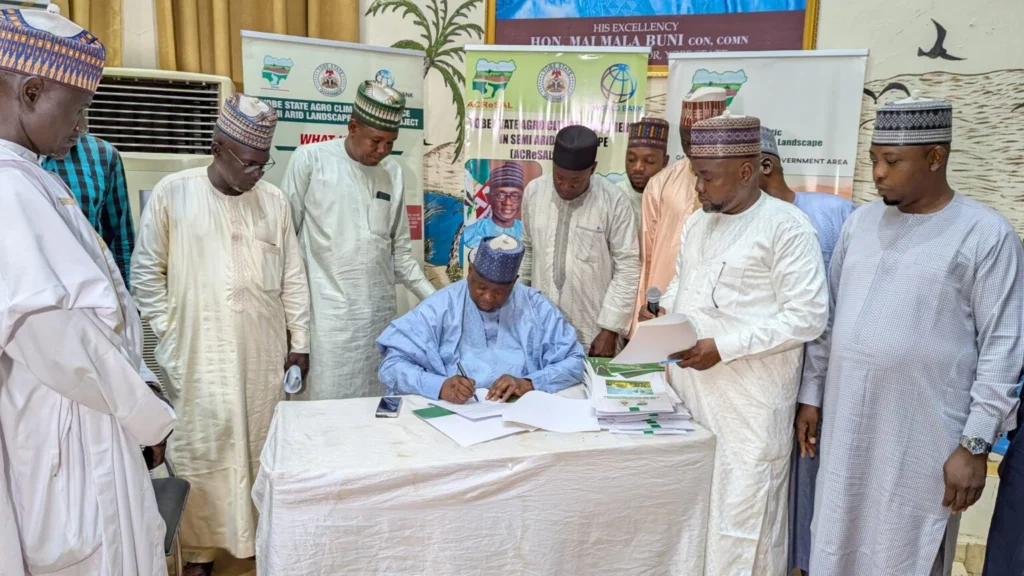No fewer than 101 communities in Yobe State have received non-interest loans of $25,000 each (approximately N38.3 million) under the World Bank-supported Agro-Climatic Resilience in Semi-Arid Landscapes (ACRESAL) Project.
The State Coordinator of ACRESAL, Alhaji Shehu Mohammed, disclosed this during the signing of a Memorandum of Acceptance with the 101 scale-up communities in Damaturu, enabling them to access the Community Revolving Fund (CRF) facility.
According to Mohammed, the initiative will support 482 farmers and community groups comprising 7,340 direct beneficiaries, 4,857 males and 2,483 females. In total, $2.525 million (about N3.8 billion) will be disbursed in this phase.
He explained that the funding is intended to boost agricultural resilience and improve livelihoods in climate-vulnerable farming communities across Yobe’s 17 Local Government Areas.
The loan follows a successful pilot phase involving 10 communities, which achieved a 65 per cent recovery rate. It aims to stimulate rural economic activities, raise farmers’ incomes, and promote responsible financial practices.
“Today’s event is more than a ceremonial signing. It signals a new phase of sustainability and resilience-building for our farming communities,” Mohammed said.
He emphasised that the CRF loan aligns with international best practices and the objectives of ACRESAL to reverse environmental degradation and promote climate-smart agriculture in northern Nigeria.
Mohammed also praised the leadership of Governor Mai Mala Buni for driving the successful implementation of ACRESAL in Yobe, and acknowledged the support of the World Bank, Federal Project Management Unit (FPMU), Federal Ministry of Environment, the Yobe State House of Assembly, and local community leaders.
In his remarks, Alhaji Sidi Karasuwa, Yobe’s Commissioner for Environment and Chairman of the State Steering Committee, described the intervention as a major step toward agricultural transformation and rural empowerment.
He noted that the symbolic launch of CRF cheques by Governor Buni in January marked the start of the second phase following an earlier intervention in two micro-watersheds.
“This fund is more than financial support; it is a tool for transformation. It enables our farmers to expand operations, adopt modern techniques, and increase productivity,” Karasuwa said.
He urged beneficiaries to use the funds responsibly and in accordance with their approved business plans, stressing the importance of timely repayment to sustain the revolving nature of the fund.
“To our farmers, let this loan be the seed that grows into a flourishing harvest of success. Use it judiciously and ensure timely repayment as agreed in your plans to prevent your communities from losing future access,” he added.
Karasuwa reaffirmed the state government’s commitment to building a resilient agricultural sector capable of withstanding climate shocks and improving rural livelihoods.
(NAN)


